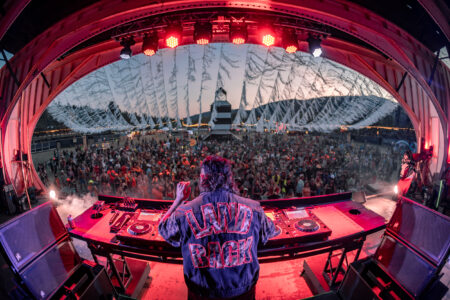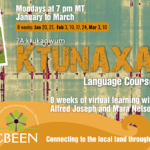Scattered Thoughts among the scattered leaves
There are more things in heaven and earth than are dreamt of in your philosophy, Horatio. – Shakespeare’s Prince Hamlet
November melancholy
This month is always the least attractive to me personally: grey, cold, leaves stripped from trees and not yet warmed by the ambiance created by the holiday season. The marking of the 50th anniversary of the assassination of J F Kennedy added an extra layer of dreariness this year. Like many of my Boomer peers, I feel the world took a turn for the worse after that event. It is a feeling, not a fact, but it is hard to shake the notion that in a parallel universe, where the Time-path forks, JFK lived and governed for two terms, and the USA did not disintegrate so badly due to the Viet Nam war and other assassinations.
Remembrance Day 2013
Once again, I was out with my peace protest message at Nelson cenotaph this year, and once again, the response was mixed, with the vast majority of people in attendance ignoring me, and a few overtly angry and hostile. Remembrance Day is forgetting day, when we forget all historical context for the wars when our soldiers died. We forget the war – whatever war — was avoidable. We do not remember the true causes were hidden by our leaders, the “victorious” results were transient and not worth the mass deaths.
The Afghan Mission, the Great War, and even the war with Hitler, were not choices we had to make. Very poor judgment by leaders who did not reflect how ordinary people think and feel led to the resort to violence, when other policies and peaceful solutions were entirely within the realm of the possible.
Remembrance of war deaths, grieving the fallen, without the context of history, is harmful to us.
Too bad the speakers at cenotaphs across the nation are not challenged when they say war “gave us our freedom.” Canada is not a free country because we fought Germany. Read history. See how our liberties were won inside Canada by our own struggles against those who would have preferred we not have democracy. Dead soldiers are not heroes in the cause of freedom. They are just dead, and mourned. I am sorry for their loved ones, but I will not be quiet when present-day leaders lie for the leaders of the past.
The Royal Canadian Legion and its allies (viz., Conservative Party MPs) who want to eradicate the white poppy by whatever means, are not bringing credit to their cause. Shame on them. They whip up anger for veterans and their families, against people who want to commemorate and honour the victims of war who were civilians. I cannot persuade the angry to see my perspective, I know. But I will not shut up.
Death and regret
An item reported on internet news sites that caught my eye last week concerned a survey of people on their deathbeds. What did they regret most often? They worked too much and enjoyed other parts of life too little. We knew this, I am sure. But knowing with our heads and acting on what we know, are such different things. Who can escape the pressure to make oneself and one’s family more “secure” by getting more money and material possessions? The pressure is relentless. We are caught in the devil’s forest and we’ve got to get ourselves back to the garden – in the immortal words of Joni Mitchell’s Woodstock.
Deep Truth
Gregg Braden is an author new to me I have just been reading, and I wish he had some stature among scientists since he has such a strong opinion of the mistakes science is making. But Braden, in his book Deep Truth, harmonizes with my own prejudice against materialist science. He is certain that the discoveries of quantum physics made by the generation of Einstein and Heisenberg, and the genetic research of James Watson and the human genome project, are not being assimilated to our worldview.
We do not truly take in the deep truth that the human mind is an integral part of reality and makes its influence felt in the particle physics of the cosmos. We do not grasp that our difference from other species is not explained by the genes we have, and that there is good evidence that random Darwinian evolution cannot explain how human life came to be. Braden thinks we can solve the crises of our times if we transform our understanding with the scientific discoveries at our disposal, but we are not transforming because scientists are not making the connection between what they know and what we lay-folk think.
What does science tell us now about human mind’s interactivity with material reality? Nothing, but it could, according to Braden. What does science tell us about the unique nature of the human, and the evidence that we are not random phenomena? Again nothing, says Braden, but there is evidence we are designed as much as we are accidental (Darwinian-natural-selection) creatures.
Transforming human consciousness interests me, and Braden. But it has a flakey “new-age” flavor to it, in the thinking of materialist scientists. So Braden is ignored by the scientific establishment. He cites an article by British physician and author James Le Fanu about the persistent blindness of science to the implications of its own discoveries. Modern science and scientists demand material causation be discovered. Evidence is accumulating that that is inadequate to describe the reality of the cosmos. Scientists refuse to hear that.
I would feel better if Braden were a scientist and other scientists engaged his writing. They do not.
Rob Ford and Stephen Harper
How much does it matter that Ford is an addict, a liar, and a person unable to see himself from the outside, and how he brings his office into disrepute? Either a lot, or not at all, apparently. What I do in my private life is up to me to change if I want to. I can still be a good mayor. That is Ford’s attitude.
Harper is exposed now as dangerously close to a liar, and a man who will throw friends to the sharks if it means he can keep his image as a man of ethics. Alternately, if he did not know what his servants were doing in the PMO, Harper has lost his famous control. Not much of a choice, to be either a liar or an incompetent. Those are his options. Alberta and the famous conservative base will love him no matter what. Others may lose faith.
The more interesting question is about us, who put these men into power. Will we tolerate their failings and defects as individuals, their character flaws in private life and in public? I am betting we will not. I suspect my wager comes more from my heart than my head.
David Suzuki admits defeatism
Suzuki, the face of environmentalism as a movement and a cause, is on the current Maclean’s magazine cover, with the caption “Environmentalism has failed.”
Someone who might speak for Socialism could be next on the cover, saying the same for that movement.
What do we tell our children, if we truly believe our battles to make a better world have been lost?
I know my answer to that. “What I think deep in my head, I do not say to my children and their peers. I refuse to be that old crank who tells them to give up, we already tried and failed and you will too.”
Hope is the last resort, and hope is what Suzuki offers. His daughters are fighting on.
My best advice to my peers is to keep your darkest fear for the human prospect under wraps. Be as loving and kind and compassionate as you know how to be. Your example is more important than your philosophy and knowledge. Wisdom is not knowing a myriad of facts. It is knowing where on the vast mountain to insert your tiny toothpick and start the motion that results in important changes.
Conundrum
I dreamed. I witnessed. I record
A vision within, a learning stored.
A mountain mass, dark, broad, and high —
Rock and stone, ice, wind, and sky.
A voice despairing spoke to me
The meaning of the fearsome scene.
“The mountain is human, a mystery.
All human problems, all human history.
Towering here over stony plains —
Injustice, war, destruction, pain.”
I felt a weight upon me fall.
What is one person, so weak, so small?
To think a life might own some mission,
A legacy for good in the human condition.
How could tiny I make change,
Leave any mark on the mountain range?
To believe I possessed any useful tool
Seemed merely the wish of a hopeful fool.
Revolutionary Destiny was my conceit.
My weapon, a stick, found there at my feet.
![]()
“This is your instrument, now be important.”
Said the voice, “Go move the mountain.”
Those were the last words I heard spoken,
Standing alone, beaten, broken.
The voice departed, then there was light,
Silver thread across the night.
From the mountain root through darkness black
I followed a lucid upward track.
I knew my purpose and intent,
To the good of humanity this way was bent.
And as I walked the path I chanted:
“Reveal, where ought my tool be planted?
“Reveal to me, on this mountain strange,
That perfect point to start massive change.”
Alas, the knowledge was denied.
No earthquake swelled, although I tried.
My wooden pick to splinters worn,
Fingers bleeding, muscles torn.
No change did I see from all my labours,
Exhausted, bewildered, I tasted failure.
I looked for others among the stones —
With help there was hope but not alone.
Here at wit's end I heard my heart,
And with bright certainty knew where to start.
Into the mountain slid my tool of wood
In a tiny fracture, and I knew I'd done good.
A pebble moved, a stone, a boulder —
Then an avalanche broke the mountain's shoulder.
A joke – I had altered humanity's fate.
Future scriptures would call me “great.”
*********
Who is a “giant”?
Who dies unremarked?
Until future is past
All is hidden in dark
But each human spirit
Born to blood and bone
Is no less a worker
Scratching in stone.
What a strange accident,
To be an earth shaker.
Humanity worships
The history makers.
.
There stands that Mountain.
What's to be done?
Humanity staggers
And walks and runs.
You and I and
We and they
Stones and slivers
To end of days.
Charles Jeanes is a Nelson-based writer. The previous edition of the Arc Of The Cognizant can be found here.

























